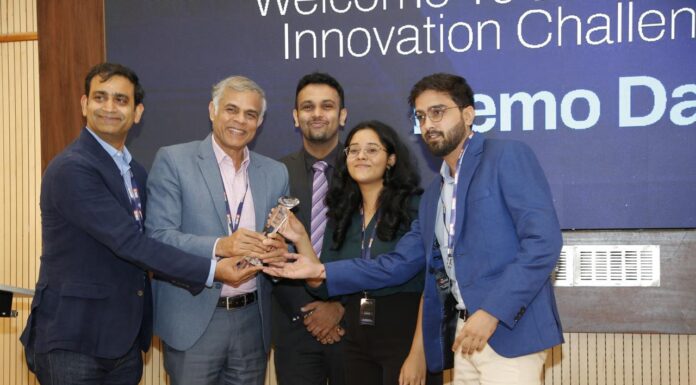By Pritam Kumar Agrawal, Founder of Hello Kids
Established in 2005, Hello Kids has emerged as a trailblazer in the Indian preschool segment by combining affordability with structured, high-quality early education—especially in Tier II and III cities. In this candid conversation, the founders share how the brand’s pioneering “No Royalty” model, tech-integrated curriculum, and robust franchise support systems have helped it grow to over 1,030 centers nationwide, with ambitious plans to double its footprint by 2030. Here’s a closer look at the journey, strategy, and vision powering Hello Kids’ success.
1. Hello Kids has built a strong presence in the preschool education sector—what was the original business vision behind the brand, and how has it evolved over the years?
Hello Kids was established in 2005 with a clear mission—to address the lack of organized early childhood education in India, especially outside metro cities. At that time, awareness around early education was minimal and largely confined to urban centers. Our vision was to create a structured, high-quality, and affordable preschool education system that could reach smaller towns, villages, and Tier II and III cities. Over the years, this vision has only strengthened, especially as the country formally recognized early childhood education as a key focus in 2020. Our evolution has been driven by this enduring commitment: to make world-class early learning accessible to every child, regardless of their location.
2. Franchising has played a pivotal role in Hello Kids’ expansion—what strategies have been key to scaling the brand across India while maintaining quality and consistency?
Franchising has been central to our growth journey. When we ventured into franchising in 2008-09, we introduced a pioneering “No Royalty” model in the Indian preschool space. This model was designed to ensure long-term partnerships and sustainability, as education is a serious, long-term commitment—not a seasonal or trendy business. By removing the royalty burden, we empowered passionate entrepreneurs to join our mission and grow with us. Our second core strategy has been affordability—delivering high-quality education at price points that parents across India can afford. These two strategies, combined with robust support and training systems, have enabled us to scale widely while maintaining consistent standards.
3. With increased competition in the edtech and preschool market, how is Hello Kids innovating to stay ahead in terms of curriculum, operations, and business efficiency?
At Hello Kids, we pride ourselves on being future-ready. We’ve already aligned our operations and educational offerings to meet the demands of 2030. Our innovation strategy involves the early integration of cutting-edge technologies, both in administration and in the classroom. We’ve implemented a robust ERP system to streamline operations and partnered with EDUZO to develop an AI-driven, gamified curriculum. This includes sensor-based learning tools where children interact physically—not passively through screens. The technology adapts to each child’s learning level and pace, enhancing both engagement and outcomes. This approach keeps us ahead in a crowded marketplace by ensuring measurable learning, business efficiency, and immersive, device-free experiences for children.
4. What kind of support systems and business models does Hello Kids offer its franchise partners to ensure profitability and long-term success?
Support for our franchise partners is extensive and hands-on. Training is our biggest strength—we provide continuous teacher training as well as business mentorship throughout the year. Our founder personally engages with business owners weekly to help them scale from their first 30 students to multiple centers. In addition, we train not just teachers but caretakers too, ensuring comprehensive child care. On the academic front, we partner with subject-matter experts for specialized training in core areas like math, language, and creative development. Operationally, we have dedicated teams for curriculum, logistics, administration, and issue resolution, ensuring our partners receive personalized, end-to-end support.
5. Looking ahead, what are your growth targets and strategic priorities for Hello Kids in the next 3–5 years, especially in Tier II and III cities?
With over 1,030 centers nationwide, including strongholds like Bangalore (108 centers) and Hyderabad-Secunderabad (93 centers), our short-term goal is to double our footprint. By December 2030, we aim to reach 2,000 operational centers. In the next 3–5 years, we are strategically focusing on Tier II and III cities across regions like Navi Mumbai, Thane, Pune, Chennai, Coimbatore, Madurai in the South, and Punjab, Uttar Pradesh, Maharashtra, Gujarat, Bihar, Jharkhand, and Madhya Pradesh in the North. These areas represent the future of preschool demand in India, and we are committed to delivering quality, affordability, and innovation at scale to meet this need.





















